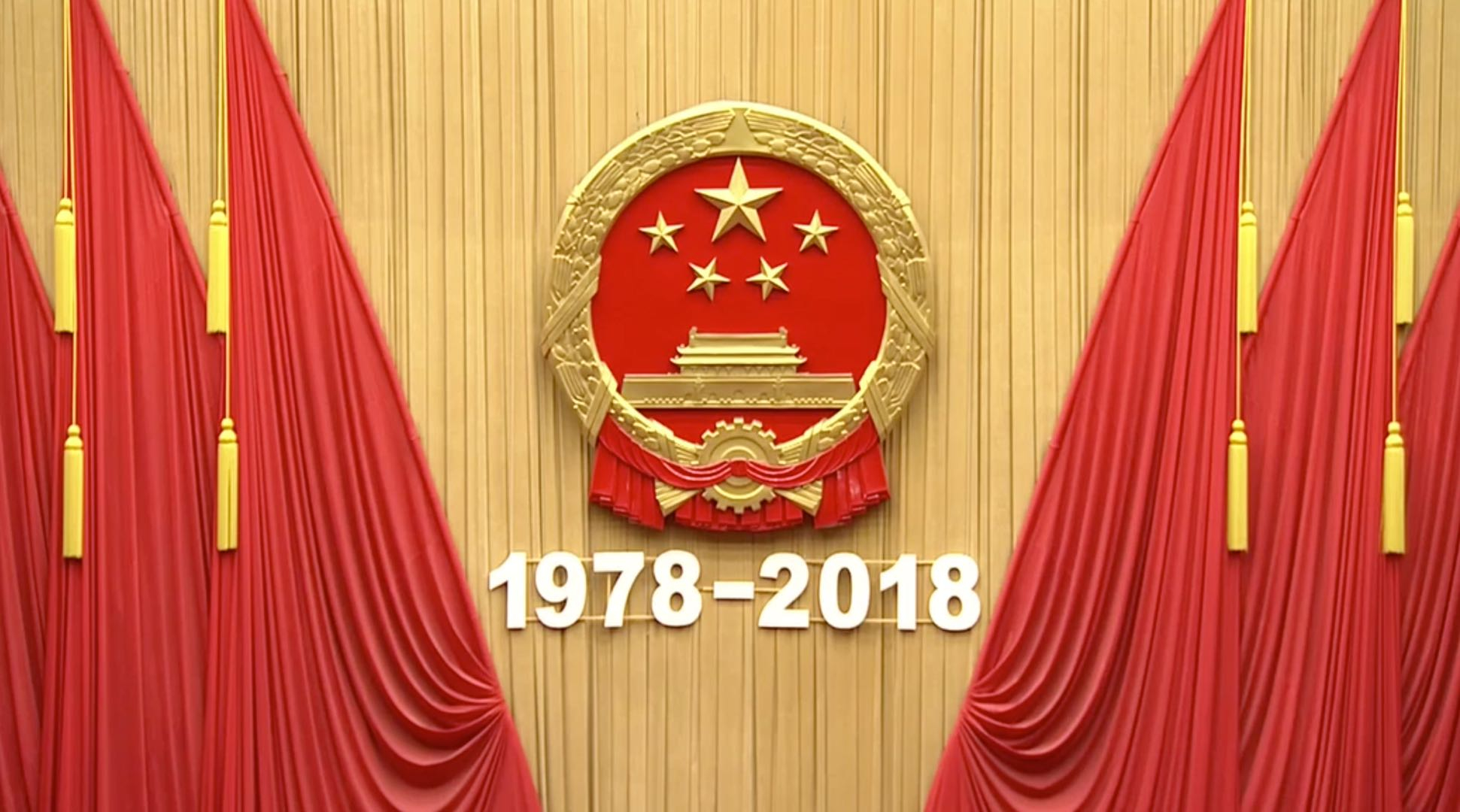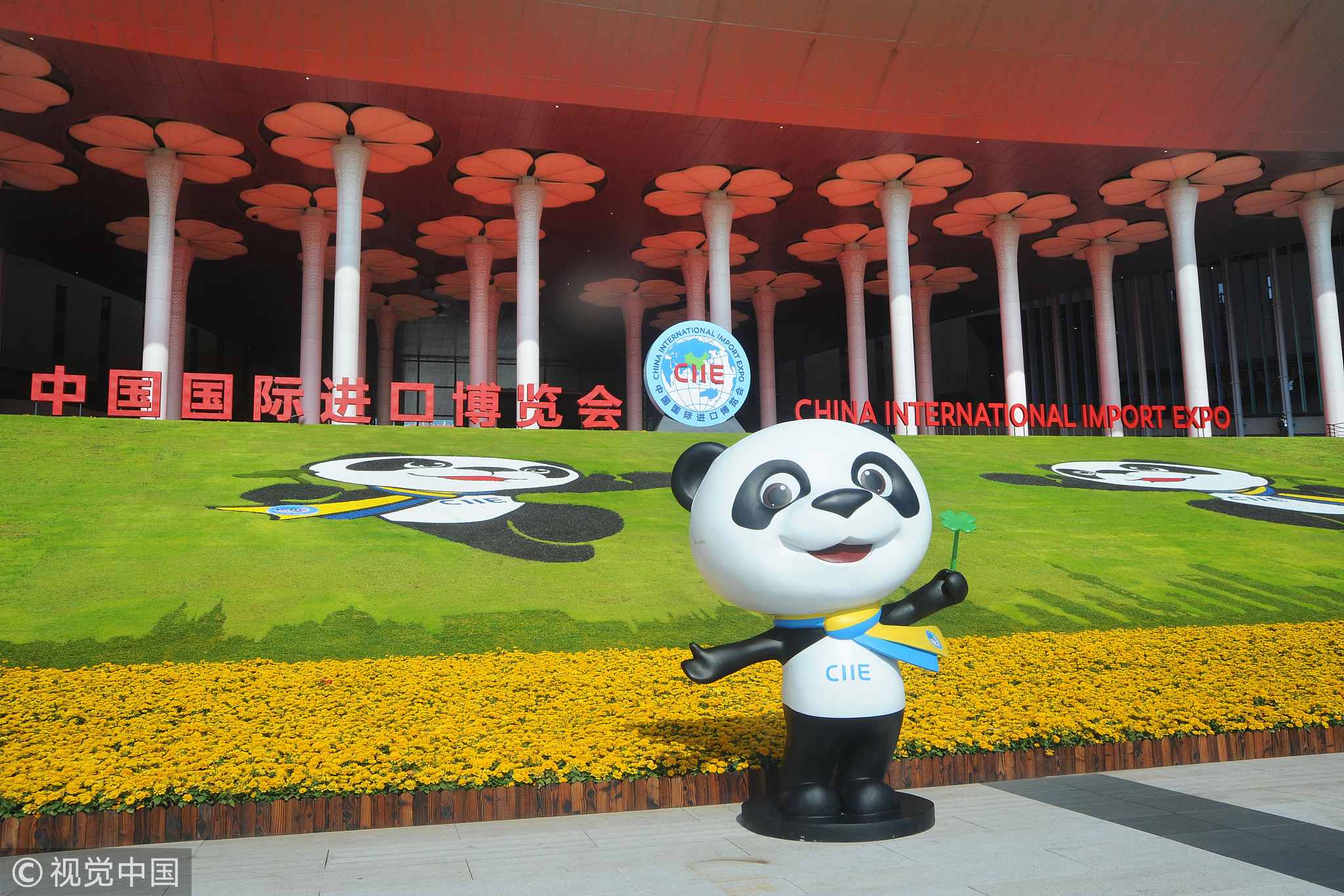
Opinions
12:47, 18-Dec-2018
Opinion: China's success achieved through relentless trials and reforms
Updated
11:29, 21-Dec-2018
CGTN's Liu Jianxi

Editor's note: The article is based on an interview with Liu Chunsheng, an associate professor at the Beijing-based Central University of Finance and Economics and deputy dean of the Blue Source Capital Research Institute. The article reflects the expert's opinions, and not necessarily the views of CGTN.
At Tuesday's conference celebrating the 40th anniversary of China's reform and opening-up, Chinese President Xi Jinping emphasized the importance of this historic event and spoke highly of the country's achievements in the past four decades.
"The founding of the Communist Party of China (CPC), the founding of the People's Republic of China, and the pursuit of reform and opening-up policy and socialism with Chinese characteristics – these historic events taking place after "May 4th Movement" – represent three milestones in achieving China's great national rejuvenation in the modern times," Xi highlighted in his speech.
The same day forty years ago, the Third Plenary Session of the 11th Central Committee of the CPC kicked off in Beijing, marking the beginning of the reform and opening-up. At this decisive turning point in Chinese history, China determined that practice is the sole criterion for testing the truth and made the historic decision to shift the focus of the Party and country's work to economic development.
Forty years of experience suggests that the policy of reform and opening-up is a great success. Shortly after the historic meeting, a slew of policies were implemented to unleash China's productivity, enhance people's livelihood and integrate the country into the international community. With domestic reforms and opening-up to the outside world, China has transformed itself into the world's second-largest economy.

Chinese students are drawing to express their feelings about changes in hometown and daily life in Hohhot City, north China's Inner Mongolia Autonomous Region, December 17, 2018. /VCG Photo
Chinese students are drawing to express their feelings about changes in hometown and daily life in Hohhot City, north China's Inner Mongolia Autonomous Region, December 17, 2018. /VCG Photo
The focus on economic development is the key to China's reforms, said Liu Chunsheng, an associate professor at the Beijing-based Central University of Finance and Economics, and deputy dean of the Blue Source Capital Research Institute.
China's productivity level was relatively low in the late 1970s and this determines that economy should be a priority at that time.
After forty years of efforts, China's GDP jumped from 367.9 billion yuan in 1978 to 82.7 trillion yuan in 2017, up by 9.5 percent on an average annual basis. The country's share of global GDP rose from 1.8 to 15.2 percent, generating more than 30 percent of global growth for years, according to media reports.
At the initial stage of the reform and opening-up, economic growth is always accompanied by difficulties. China's economic conditions at that time determine that market-oriented reforms cannot be achieved overnight and a balance between economic prosperity and social stability is a challenge for China, Liu said.
"Crossing the river by feeling the stone" is an important concept guiding the country's development. Compared with Western economic theories, China is constantly adjusting its policies based on the reality of the country, and breaking new ground through bold trials and reforms.

China International Import Expo was held in China's financial hub Shanghai in November 2018. /VCG Photo
China International Import Expo was held in China's financial hub Shanghai in November 2018. /VCG Photo
After four decades of trials and reforms, China has realized economic prosperity while maintaining high-level political and social stability. This is where the advantages of the system of socialism with Chinese characteristics lie, Liu told CGTN.
China's socialist system aims for liberating productivity while eliminating exploitation, and in this way, the country's development dividends are shared at all levels of Chinese society.
In his speech, President Xi emphasized the importance of improving the system of socialism with Chinese characteristics. "This (China's system) has bolstered our effort to unlock and develop the productive forces, unleash and increase social vitality and preserve the vitality of the Party and the country," Xi said.
Xi added that the system "has underpinned social stability, public well-being, and national security and fostered vibrant institutions and mechanisms that enable labor, knowledge, technology, managerial expertise and capital to play their full part in invigorating the market and open up all sources of social wealth."
China's success is achieved through hardships and difficulties, and at present, the country is again fraught with challenges, which requires great wisdom and determination to keep pushing forward the reform and opening-up. Against the backdrop of Washington's trade war and rising protectionist sentiments, China has demonstrated its determination to further open up its economy by a slew of policies, of which China International Import Expo held in Shanghai in November is a vivid example.
At the 40th anniversary of this historical event, President Xi reiterated the CPC's political will to deepen domestic reforms and further open up to the outside world. The future will see China's relentless efforts in promoting this policy, just as Xi said in the speech that "China's ships of reform and opening-up will break waves and sail on the right course."
(If you want to contribute and have specific expertise, contact us at opinions@cgtn.com)

SITEMAP
Copyright © 2018 CGTN. Beijing ICP prepared NO.16065310-3
Copyright © 2018 CGTN. Beijing ICP prepared NO.16065310-3